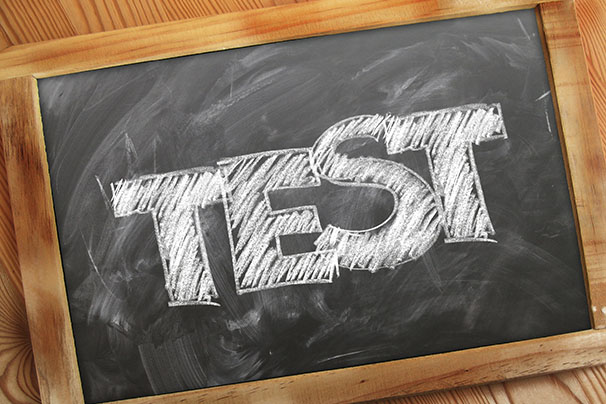通知设置 新通知
分享一下背单词的方法:拆词法
呆檬檬 回复了问题 • 2 人关注 • 1 个回复 • 27025 次浏览 • 2018-01-12 11:36
副词的用法详解
一朵奇葩 发表了文章 • 0 个评论 • 2743 次浏览 • 2018-01-07 11:24
一、副词的位置:
1) 在动词之前。
2) 在be动词、助动词之后。
3) 多个助动词时,副词一般放在第一个助动词后。
注意:
a. 大多数方式副词位于句尾,但宾语过长,副词可以提前,以使句子平衡。
We could see very clearly a strange light ahead of us.
b. 方式副词well,badly糟、坏,hard等只放在句尾。
He speaks English well.
二、副词的排列顺序:
1) 时间,地点副词,小单位的在前,大单位在后。
2) 方式副词,短的在前,长的在后,并用and或but等连词连接。
Please write slowly and carefully.
3) 多个不同副词排列:程度+地点+方式+时间副词。
注意:副词very 可以修饰形容词,但不能修饰动词。
I like English very much.
注意:副词enough要放在形容词的后面,形容词enough放在名词前后都可。
I don't know him well enough.
There is enough food for everyone to eat.
There is food enough for everyone to eat.
查看全部
一、副词的位置:
1) 在动词之前。
2) 在be动词、助动词之后。
3) 多个助动词时,副词一般放在第一个助动词后。
注意:
a. 大多数方式副词位于句尾,但宾语过长,副词可以提前,以使句子平衡。
We could see very clearly a strange light ahead of us.
b. 方式副词well,badly糟、坏,hard等只放在句尾。
He speaks English well.
二、副词的排列顺序:
1) 时间,地点副词,小单位的在前,大单位在后。
2) 方式副词,短的在前,长的在后,并用and或but等连词连接。
Please write slowly and carefully.
3) 多个不同副词排列:程度+地点+方式+时间副词。
注意:副词very 可以修饰形容词,但不能修饰动词。
I like English very much.
注意:副词enough要放在形容词的后面,形容词enough放在名词前后都可。
I don't know him well enough.
There is enough food for everyone to eat.
There is food enough for everyone to eat.
不定代词详解
一朵奇葩 发表了文章 • 0 个评论 • 2024 次浏览 • 2018-01-07 11:21
all , both, every, each, either, neither, more, little, few, much, many, another, other, some, any , one, some, something, anything, everything, somebody, someone, anybody, anyone, nothing , nobody, no one, none, everybody, everyone, etc..
2、不定代词的功能与用法
除 every 和 no外不定代词既可用作名词,也可用作形容词。every和 no在句中只能作定语。
all 都,指三者以上。
all 的主谓一致:all 的单复数由它所修饰或指代的名词的单复数决定。
all 通常不与可数名词单数连用,但 all 可与表时间的可数名词单数连用。
all 还可以与一些特殊的单数名词连用,如 all China, all my life, all the way
2、 both 都,指两者。
both 与复数动词连用,但 both… and…可与单数名词连用。
4、neither 两者都不
neither 作主语时,谓语动词用单数。
作定语与单数名词连用,但 neither… nor 用作并列连词,可与复数名词连用。其谓语采用就近原则。
可用于下列句型,避免重复。 She can't sing,neither (can) he.
5、 不定代词 one和 you都可以用来表示“无论谁,人人”的意思,但是以个是第三人称,一个是第二人称,故在指代同一个人的时候不能又用 one,又用 you。同样,也不可以用 all 和you。
6、 each, every 的用法。
each 可用作代词,后面可以不跟名词,every是形容词,后面必须跟名词;each 和 every作形容词使用时,后面的名词虽然有 and 连接,为复数概念,谓语动词仍须用单数。
查看全部
all , both, every, each, either, neither, more, little, few, much, many, another, other, some, any , one, some, something, anything, everything, somebody, someone, anybody, anyone, nothing , nobody, no one, none, everybody, everyone, etc..
2、不定代词的功能与用法
除 every 和 no外不定代词既可用作名词,也可用作形容词。every和 no在句中只能作定语。
all 都,指三者以上。
all 的主谓一致:all 的单复数由它所修饰或指代的名词的单复数决定。
all 通常不与可数名词单数连用,但 all 可与表时间的可数名词单数连用。
all 还可以与一些特殊的单数名词连用,如 all China, all my life, all the way
2、 both 都,指两者。
both 与复数动词连用,但 both… and…可与单数名词连用。
4、neither 两者都不
neither 作主语时,谓语动词用单数。
作定语与单数名词连用,但 neither… nor 用作并列连词,可与复数名词连用。其谓语采用就近原则。
可用于下列句型,避免重复。 She can't sing,neither (can) he.
5、 不定代词 one和 you都可以用来表示“无论谁,人人”的意思,但是以个是第三人称,一个是第二人称,故在指代同一个人的时候不能又用 one,又用 you。同样,也不可以用 all 和you。
6、 each, every 的用法。
each 可用作代词,后面可以不跟名词,every是形容词,后面必须跟名词;each 和 every作形容词使用时,后面的名词虽然有 and 连接,为复数概念,谓语动词仍须用单数。
英语语法:这些连词你都用对了吗?
一朵奇葩 发表了文章 • 0 个评论 • 2241 次浏览 • 2017-12-28 10:21
(误)He neither speaks English nor French.
(正)He speaks neither English nor French.(either…or,not only…but also等对等相关连词所连接的部份应是相同词性或起相同作用。)
2.由于今天感觉不适,我决定待在家里。
(误)For I did not feel well today, decided to stay at home.
(正)I decided to stay at home for I did not feel well today.(对等连词for连接两个对等的句子时不可放在句首。)
3.不是你错了就是我错了。
(误)Either you or I are wrong.
(正)Either you or I am wrong.(在含有either…or的句子中,谓语动词的数由较近的主语决定。)
4.虽然他很富有,但他并不快乐。
(误)Although he is very rich, but he is not happy.
(正)Although he is very rich, he is not happy.(though或although放在字句首时,本身就具有虽然…但是的意思,不可和but连用。)
5.我从来没有去过伦敦和巴黎。
(误)I have never been to London and Paris.
(正)I have never been to London or Paris.(在否定句中,对等连词一般不用and,而用or。)
6.他向我道歉我才跟他说话。
(误)I shall speak to him until he apologizes.
(正)I shan't speak to him until he apologizes.(not…until表示到…时候才,在此句中speak的动作要等到他道歉时才发生。)
7.因为我想学英语,所以我买了一本字典。
(误)Because I wanted to learn English, so I bought a dictionary.
(正)Because I wanted to learn English, I bought a dictionary.(because本身就具有因为…所以的意思,不可再和so连用。) 查看全部
(误)He neither speaks English nor French.
(正)He speaks neither English nor French.(either…or,not only…but also等对等相关连词所连接的部份应是相同词性或起相同作用。)
2.由于今天感觉不适,我决定待在家里。
(误)For I did not feel well today, decided to stay at home.
(正)I decided to stay at home for I did not feel well today.(对等连词for连接两个对等的句子时不可放在句首。)
3.不是你错了就是我错了。
(误)Either you or I are wrong.
(正)Either you or I am wrong.(在含有either…or的句子中,谓语动词的数由较近的主语决定。)
4.虽然他很富有,但他并不快乐。
(误)Although he is very rich, but he is not happy.
(正)Although he is very rich, he is not happy.(though或although放在字句首时,本身就具有虽然…但是的意思,不可和but连用。)
5.我从来没有去过伦敦和巴黎。
(误)I have never been to London and Paris.
(正)I have never been to London or Paris.(在否定句中,对等连词一般不用and,而用or。)
6.他向我道歉我才跟他说话。
(误)I shall speak to him until he apologizes.
(正)I shan't speak to him until he apologizes.(not…until表示到…时候才,在此句中speak的动作要等到他道歉时才发生。)
7.因为我想学英语,所以我买了一本字典。
(误)Because I wanted to learn English, so I bought a dictionary.
(正)Because I wanted to learn English, I bought a dictionary.(because本身就具有因为…所以的意思,不可再和so连用。)
时间介词全都在这了
一朵奇葩 发表了文章 • 0 个评论 • 3021 次浏览 • 2017-12-26 17:21
I have breakfast at 7:00 every day. 我每天7点吃早饭。
2. on表示“在具体某一天或某天的上、下午”:
We have a meeting on Monday. 我们周一开会。
We will arrive in Beijing on the morning of next Monday.下周一上午,我们将抵达北京。
3. in表示“在某世纪、年、季度、月、周”以及泛指的上午、下午、晚上:
in the 20th century 在20世纪
in winter 在冬季
in the morning/afternoon/evening 在上午/下午/晚上
4. for表示某事持续多久,后接“一段时间”(多与完成时连用):
She has been here for several years. 她来这儿有几年了。
5. during表示“在……期间”:
He went to Hawaii during the summer. 这个夏天他去了夏威夷。
6. through表示“一直……,自始至终”:
They studied hard through this summer vacation. 整个暑假他们都在努力学习。
7. from表示“时间的起点”,可译作“从…”,常用于“from…to/till…”中:
The museum is open from Monday to Friday. 博物馆周一至周五开放。
8. since表示“自从……以来(直到现在)”:
He has been away from home since 1998. 他自1998年就离开了家乡。
(1)for和since都常与完成时连用,但for接时间段,since接时间点:
for two days(持续)两天;since last week从上周直到现在。
(2)如果在since引导的状语从句中,谓语动词是持续性动词或表示状态的动词过去时,那么从句表示的时间是“从那持续动作或状态结束时算起”:
I haven’t seen my mother since I slept.
9. before指“在……之前”,与after相对:
Please come to school before 8 o’clock. 请8点前到校。
10. by指“不迟于,到……时为止,在……以前”:
We will have learned more than 3000 words by the end of this year. 到今年底为止,我们将学习3000多个单词。
11.till (until) “直到……为止”:在肯定句中,till/until必须与延续动词连用;在否定句中,till/until常与非延续性动词连用。
肯定:You must wait for him till he comes. 你必须一直等到他来。
否定:I didn’t go to bed until 9 o’clock. 直到12点我才睡觉。
12. after表示“在……之后”:
We will have an important meeting after 12:00. 十二点钟后,我们将召开一个重要会议。
13. within“在……时间之内”:
Everybody must finish the task within 10 minutes. 所有人十分钟内必须完成任务。 查看全部
I have breakfast at 7:00 every day. 我每天7点吃早饭。
2. on表示“在具体某一天或某天的上、下午”:
We have a meeting on Monday. 我们周一开会。
We will arrive in Beijing on the morning of next Monday.下周一上午,我们将抵达北京。
3. in表示“在某世纪、年、季度、月、周”以及泛指的上午、下午、晚上:
in the 20th century 在20世纪
in winter 在冬季
in the morning/afternoon/evening 在上午/下午/晚上
4. for表示某事持续多久,后接“一段时间”(多与完成时连用):
She has been here for several years. 她来这儿有几年了。
5. during表示“在……期间”:
He went to Hawaii during the summer. 这个夏天他去了夏威夷。
6. through表示“一直……,自始至终”:
They studied hard through this summer vacation. 整个暑假他们都在努力学习。
7. from表示“时间的起点”,可译作“从…”,常用于“from…to/till…”中:
The museum is open from Monday to Friday. 博物馆周一至周五开放。
8. since表示“自从……以来(直到现在)”:
He has been away from home since 1998. 他自1998年就离开了家乡。
(1)for和since都常与完成时连用,但for接时间段,since接时间点:
for two days(持续)两天;since last week从上周直到现在。
(2)如果在since引导的状语从句中,谓语动词是持续性动词或表示状态的动词过去时,那么从句表示的时间是“从那持续动作或状态结束时算起”:
I haven’t seen my mother since I slept.
9. before指“在……之前”,与after相对:
Please come to school before 8 o’clock. 请8点前到校。
10. by指“不迟于,到……时为止,在……以前”:
We will have learned more than 3000 words by the end of this year. 到今年底为止,我们将学习3000多个单词。
11.till (until) “直到……为止”:在肯定句中,till/until必须与延续动词连用;在否定句中,till/until常与非延续性动词连用。
肯定:You must wait for him till he comes. 你必须一直等到他来。
否定:I didn’t go to bed until 9 o’clock. 直到12点我才睡觉。
12. after表示“在……之后”:
We will have an important meeting after 12:00. 十二点钟后,我们将召开一个重要会议。
13. within“在……时间之内”:
Everybody must finish the task within 10 minutes. 所有人十分钟内必须完成任务。
英语词汇:“Kid”和“Alternate”的用法
邪流丸 发表了文章 • 1 个评论 • 5613 次浏览 • 2017-07-13 11:53
与Kid相关的表达
‘kid’可以表示以某件事物来开玩笑。
"The zookeeper was kidding when she said the snake will bite me."
当动物管理员说那条蛇会咬我时,她是在开玩笑。
它同样可以表示不说实话。
"I've been kidding him for a few years now and he hasn't realised that I'm not telling him the truth."
我到现在已经骗了他几年了,而且他还没有意识到我没有对他说实话。
下面这些包含‘kid’的短语是在日常口语中经常会用到的:
Just kidding
当我们说话时说到一些并不希望对方认真谈论的事情的时候,我们可以使用‘just kidding’这个短语。
A: "There are two things I'm really, really afraid of. One is a snake and the other is my mum."
A:有两件事是我非常非常害怕的。一个是蛇,另一个是我妈妈。
B: "Oh really?"
B:哦,真的吗?
A: "Well, I'm just kidding about my mum."
A:好吧,我只是用我妈妈开了个玩笑。
No kidding
我们可以使用‘no kidding’来强调我们所说的话。
"I spent the whole day cleaning my house, no kidding!"
我花了一整天打扫我的房子,没有开玩笑!
You must be kidding/You have to be kidding
我们使用‘you must be kidding’来回应人们说的话。你经常会用到‘you must be kidding’来表示你不相信对方所说的话。
A: "I took two hours to make this cake."
A:我花了两个小时来做这个蛋糕。
B: "You must be kidding. Did it really take that long?"
B:你一定是在开玩笑。它真的需要那么长的时间吗?
你同样也可以说:“you must be joking”。
Alternate的不同含义
‘Alternate’可以被用于动词,也可以作为形容词。
作为动词时,‘alternate’可以表示一件事在另一件事之后发生,二者交替重复。通常用于谈论某事在两件事物之间进行。
"She alternated between freestyle and backstroke during her swimming lesson today."
今天的游泳课上她在自由泳和仰泳之间交替练习。
"He has been alternating between his parents' place and his friend's place during the school break."
在学校假期期间,他在他的父母家和朋友家交替居住。
其他形式包括:‘alternating’和‘alternated’
‘Alternate’作为一个形容词可以表示每隔一个的意思。例如,如果我们谈论天数,这个词可以表示每隔一天。
"Cycling to the city is allowed only on alternate days."
每隔一天才可以骑自行车去市区。
"They go to the park every alternate Sunday."
他们每隔一周的周日,他们会去公园。
查看全部
与Kid相关的表达
‘kid’可以表示以某件事物来开玩笑。
"The zookeeper was kidding when she said the snake will bite me."
当动物管理员说那条蛇会咬我时,她是在开玩笑。
它同样可以表示不说实话。
"I've been kidding him for a few years now and he hasn't realised that I'm not telling him the truth."
我到现在已经骗了他几年了,而且他还没有意识到我没有对他说实话。
下面这些包含‘kid’的短语是在日常口语中经常会用到的:
Just kidding
当我们说话时说到一些并不希望对方认真谈论的事情的时候,我们可以使用‘just kidding’这个短语。
A: "There are two things I'm really, really afraid of. One is a snake and the other is my mum."
A:有两件事是我非常非常害怕的。一个是蛇,另一个是我妈妈。
B: "Oh really?"
B:哦,真的吗?
A: "Well, I'm just kidding about my mum."
A:好吧,我只是用我妈妈开了个玩笑。
No kidding
我们可以使用‘no kidding’来强调我们所说的话。
"I spent the whole day cleaning my house, no kidding!"
我花了一整天打扫我的房子,没有开玩笑!
You must be kidding/You have to be kidding
我们使用‘you must be kidding’来回应人们说的话。你经常会用到‘you must be kidding’来表示你不相信对方所说的话。
A: "I took two hours to make this cake."
A:我花了两个小时来做这个蛋糕。
B: "You must be kidding. Did it really take that long?"
B:你一定是在开玩笑。它真的需要那么长的时间吗?
你同样也可以说:“you must be joking”。
Alternate的不同含义
‘Alternate’可以被用于动词,也可以作为形容词。
作为动词时,‘alternate’可以表示一件事在另一件事之后发生,二者交替重复。通常用于谈论某事在两件事物之间进行。
"She alternated between freestyle and backstroke during her swimming lesson today."
今天的游泳课上她在自由泳和仰泳之间交替练习。
"He has been alternating between his parents' place and his friend's place during the school break."
在学校假期期间,他在他的父母家和朋友家交替居住。
其他形式包括:‘alternating’和‘alternated’
‘Alternate’作为一个形容词可以表示每隔一个的意思。例如,如果我们谈论天数,这个词可以表示每隔一天。
"Cycling to the city is allowed only on alternate days."
每隔一天才可以骑自行车去市区。
"They go to the park every alternate Sunday."
他们每隔一周的周日,他们会去公园。
英语词汇:常用动词“Graduate”和“Participate”的用法
邪流丸 发表了文章 • 1 个评论 • 4628 次浏览 • 2017-07-13 11:40
Graduate的含义与用法
你知道‘graduate’是什么意思吗?那‘undergraduate’和‘postgraduate’之间又有什么区别呢?今天的英语点滴我们就来学习一下这些常用的单词。
‘graduate’的意思是毕业,通常是指在大学完成一个学位的学习。它的过去式是‘graduated’。
当一个人正在‘graduating’,那么就意味着他们正要被授予一个学位。他们会收到一个证书表明他们已经完成了所有课程的学习。
"I'm graduating at the end of this year."
我将在今年年底毕业。
毕业的名词为‘graduation’
"It's important to attend my sister's graduation ceremony."
参加我姐姐的毕业典礼是很重要的。
一旦你毕业了,你就成为了一名‘graduate’,毕业生。在这种语境下,它被用作名词,而且发音也是不一样的。
"I'm with all the other graduates."
我和其他毕业生一起。
如果你继续深造,并攻读另一个学位,你将成为一名‘postgraduate’研究生。在这种语境之下,它用作名词。
"The conference was attended by postgraduates and their professors."
大会由研究生和他们的教授出席。
你还可以攻读一个‘postgraduate’学位或课程。在此语境下,‘postgraduate’是一个形容词。
"After completing my degree in English, I went on do a postgraduate degree in Arts."
在完成我的英语学位之后,我去攻读了一个文学研究生学位。
如果你还在进行你的第一个学位的学习,你就是一名‘undergraduate’本科生。在此,它依然用作一个名词。
"Most undergraduates live near the university."
大多数的本科生住在大学附近。
你同样可以将‘undergraduate’用作一个形容词。
"We're in the first year of our undergraduate degree and we are enjoying ourselves."
我们现在是大学本科一年级,我们自己觉得很快乐。
Participate的用法
如果你想要参加到某事当中,有可以说你想要‘participate’。阅读今天的英语点滴来学习如何使用‘participate’这个词吧!
‘participate’可以表示加入,以及参与到某事之中的意思。
"She is going to participate in the dance competition."
她要去参加那个舞蹈比赛。
"I didn't know everyone could participate in this pageant."
我不知道每个人都可以参与到这个盛会中来。
参与到某个活动或者节目中的人被称为‘participants’,参与者。
"The participants of the dance competition are getting ready for their final performance."
舞蹈比赛的参赛者们正在为他们的最终表演作准备。
"The participants were part of the health program and they took part in a number of exercises."
健康计划的参与者们参与了很多的演习。
表达Participate的另一种方式是使用‘take part’这个词组。
"I have taken part in a lot of dancing competitions."
我已经参加过了许多舞蹈比赛。
A: "Did you take part in last year's English speaking competition?"
A:你参加了去年的英语演讲比赛吗?
B: "Yes I did and I had a great time."
B:是的我参加了,而且度过了很棒的时光。
查看全部
Graduate的含义与用法
你知道‘graduate’是什么意思吗?那‘undergraduate’和‘postgraduate’之间又有什么区别呢?今天的英语点滴我们就来学习一下这些常用的单词。
‘graduate’的意思是毕业,通常是指在大学完成一个学位的学习。它的过去式是‘graduated’。
当一个人正在‘graduating’,那么就意味着他们正要被授予一个学位。他们会收到一个证书表明他们已经完成了所有课程的学习。
"I'm graduating at the end of this year."
我将在今年年底毕业。
毕业的名词为‘graduation’
"It's important to attend my sister's graduation ceremony."
参加我姐姐的毕业典礼是很重要的。
一旦你毕业了,你就成为了一名‘graduate’,毕业生。在这种语境下,它被用作名词,而且发音也是不一样的。
"I'm with all the other graduates."
我和其他毕业生一起。
如果你继续深造,并攻读另一个学位,你将成为一名‘postgraduate’研究生。在这种语境之下,它用作名词。
"The conference was attended by postgraduates and their professors."
大会由研究生和他们的教授出席。
你还可以攻读一个‘postgraduate’学位或课程。在此语境下,‘postgraduate’是一个形容词。
"After completing my degree in English, I went on do a postgraduate degree in Arts."
在完成我的英语学位之后,我去攻读了一个文学研究生学位。
如果你还在进行你的第一个学位的学习,你就是一名‘undergraduate’本科生。在此,它依然用作一个名词。
"Most undergraduates live near the university."
大多数的本科生住在大学附近。
你同样可以将‘undergraduate’用作一个形容词。
"We're in the first year of our undergraduate degree and we are enjoying ourselves."
我们现在是大学本科一年级,我们自己觉得很快乐。
Participate的用法
如果你想要参加到某事当中,有可以说你想要‘participate’。阅读今天的英语点滴来学习如何使用‘participate’这个词吧!
‘participate’可以表示加入,以及参与到某事之中的意思。
"She is going to participate in the dance competition."
她要去参加那个舞蹈比赛。
"I didn't know everyone could participate in this pageant."
我不知道每个人都可以参与到这个盛会中来。
参与到某个活动或者节目中的人被称为‘participants’,参与者。
"The participants of the dance competition are getting ready for their final performance."
舞蹈比赛的参赛者们正在为他们的最终表演作准备。
"The participants were part of the health program and they took part in a number of exercises."
健康计划的参与者们参与了很多的演习。
表达Participate的另一种方式是使用‘take part’这个词组。
"I have taken part in a lot of dancing competitions."
我已经参加过了许多舞蹈比赛。
A: "Did you take part in last year's English speaking competition?"
A:你参加了去年的英语演讲比赛吗?
B: "Yes I did and I had a great time."
B:是的我参加了,而且度过了很棒的时光。


 精品课程
精品课程 特色课程
特色课程















